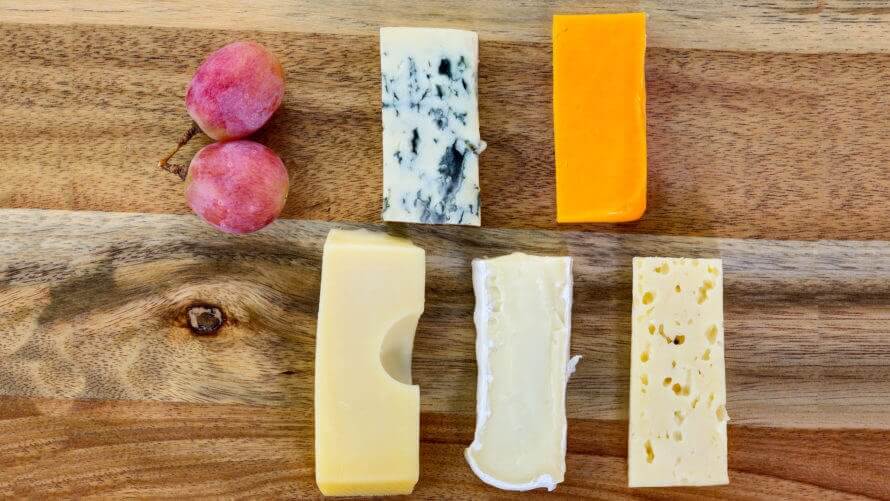Regulating and labeling GE food ingredients might seem like a straightforward process, but it’s not. Organic food advocates have taken contradictory stances on food ingredients made from GMOs. Under the USDA’s National Organic Program (NOP), organic breakfast cereals, for example, may contain vitamin A processed from soy, nearly all of which is genetically modified in the United States, and vitamin C from GMO corn. The NOP has been criticized for this allowance by anti-GMO activists and organic purists. The popular website Organic and Non-GMO report complains that the policy is “ambiguous”:
According to Gwendolyn Wyard, processing program reviewer at organic certifier Oregon Tilth, the use of . vitamins creates challenges for organic food companies and for organic certifiers. The NOP rule states that an organic product “must be produced and handled without the use of excluded methods,” such as genetic engineering. The problem, says Wyard, is that the language in the NOP regarding excluded methods is ambiguous. “This has led to inconsistent interpretations of the GMO prohibition by organic certifiers,” she says.
Contradictions abound. The USDA allows vitamins made from GMO corn and soy in its certified organic products, but the agency’s certified organic cheeses are not permitted to contain enzymes produced with genetic engineering. USDA policy stands in contrast to the more science-based regulations on GE cheeses issued by the Food and Drug Administration and most food regulators around the world: Harvard’s Kevin Bonham:
Most regulatory agencies don’t consider chymosin an ingredient. And in any case, purified chymosin from E. coli is chemically indistinguishable from that taken from calves. And [this] goes beyond cheese, the FDA has approved over 30 recombinant enzymes for use in food production.
Credit: Max Pixel
Vermont, the only US state to pass “right to know” GMO labeling legislation, in 2014 (subsequently superseded by the federal labeling regulations), and a major cheese producer, exempted its dairies from putting a GMO label on cheese produced with fermentation-produced chymosin (FPC) after lobbying from its influential dairy industry. Clarifying Vermont’s policy, the state’s attorney general wrote:
[Animal foods could be considered GMO-free] “regardless of whether the animal has been fed or injected with any food, drug, or other substance produced with genetic engineering,
The UK maintains a similar standard, noting:
Foods produced with the help of GM technology do not have to be labelled. An example of this is cheese produced with the help of GM enzymes which are used to clot the milk in the production process. These are not ingredients in the cheese.
Similarly, Germany doesn’t require foods produced with genetic engineering to be labeled as GMOs, however these products cannot be labeled non-GMO either, even if the final product contains no GE material. CHR Hansen, a Danish company that manufactures dairy enzymes, pointed out:
[C]are needs to be taken with regards to the labeling of the final food products, as in some countries local laws or voluntary standards limit the use of enzymes produced with GMO. One example is the ‘Ohne Gentechnik’ which does not allow the use of GMO produced enzymes according to the German legislation.
The Non-GMO Project, a multi-million dollar food certifying nonprofit that sells its non- GMO butterfly label to food manufacturers classifies all food ingredients derived from genetically modified sources as “high risk” (without citing any evidence). It requires that all products it certifies be made exclusively from “non-GMO” ingredients.
Anti-GMO blogger Vani Hari (the “Food Babe”) takes a similar stance. Warning about “shocking ingredients” like sugar made from GE corn used to brew beer, Hari wrote, “GMOs have not been tested long term on human beings and are linked to inflammation, cancer and other diseases.” Contrary to the Food Babe’s concerns and the Non-GMO Projects implied warnings, corn syrup is just sugar, chemically identical to the table sugar sucrose made from non-GMO sugar cane. Many “GMO-free” beers contain sucrose in the form of cane sugar.
Although the Non-GMO Project and the Food Babe don’t make exceptions for products made with GE enzymes and similar ingredients, their more stringent definition of “GMOs” is still arbitrary and unscientific. Harvard University microbiologist Kevin Bonham:
Groups like the [Non-GMO Project] reject the use of [genetically engineered] enzymes, but go even further. Bafflingly, they even oppose the use of recombinant proteins to make small molecule compounds like citric acid, claiming they pose “GMO risk.” This term is meaningless – are they saying a chemical compound can somehow have memory of where it came from?
These clashing policies make clear that ideology and economics drive the decision to treat food ingredients as GMOs. Vermont’s dairies produce $1.3 billion worth of products each year, so the state had a financial incentive to allow its cheese producers to use fermentation-produced chymosin. FPC is less expensive than the same enzyme obtained from the stomach lining of an unweaned calf.
In contrast, the Non-GMO Project, which certifies $11 billion worth of products annually, has an incentive to market its subjective product “purity” standards. So even though Vermont and the project are ostensibly aligned on the issue of labeling GMOs–the Non-GMO Project praised Vermont’s labeling rules as “a huge step towards transparency”–the two entities took opposing positions on several important GMO-derived food ingredients.



